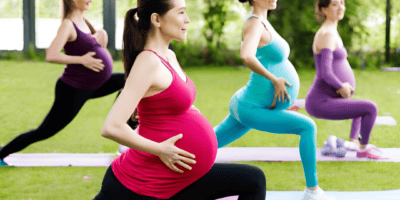We’ve all seen the headlines: seemingly fit people in their 30s or 40s suddenly collapsing during a run, gym session, or sports activity. These incidents are shocking, not just because of the age group, but because many of these individuals looked perfectly healthy.
So what’s going on? Why is this happening, and more importantly, what can we do to prevent it?
1. Silent Heart Conditions
Many cardiac issues develop silently over the years — high blood pressure, cholesterol buildup, or even congenital heart defects that never showed symptoms before.
- Sudden cardiac arrest during workouts is often linked to undiagnosed coronary artery disease.
- In the 30s and 40s, years of unhealthy eating, stress, smoking, or even genetics can suddenly catch up during intense physical exertion.
Key takeaway: A normal-looking body doesn’t guarantee a normal-functioning heart.
2. Overestimating Fitness Levels
Many cardiac issues develop silently over the years — high blood pressure, cholesterol buildup, or even congenital heart defects that never showed symptoms before.
- Sudden cardiac arrest during workouts is often linked to undiagnosed coronary artery disease.
- In the 30s and 40s, years of unhealthy eating, stress, smoking, or even genetics can suddenly catch up during intense physical exertion.
Key takeaway: A normal-looking body doesn’t guarantee a normal-functioning heart.
3. Electrolyte Imbalance & Dehydration
Sweating heavily without replenishing electrolytes (sodium, potassium, magnesium) can cause dangerous heart rhythm disturbances.
- Common in high-heat workouts like outdoor runs or HIIT sessions.
- Symptoms like dizziness, cramps, or palpitations often go ignored until collapse happens.
4. Stress + Lack of Sleep
Chronic stress and sleep deprivation are like invisible saboteurs.
- They raise cortisol levels, increase blood pressure, and make your heart more vulnerable during exercise.
- In the 30s and 40s, balancing career, family, and finances often means health silently takes a backseat.
5. Ignoring Warning Signs
Many people dismiss:
- Chest discomfort
- Shortness of breath disproportionate to effort
- Dizziness or unusual fatigue
These can be early alarms from your body. Pushing through can turn a warning into an emergency.
How to Protect Yourself
- Get a Health Check Before Pushing Hard
Annual heart screening (ECG, cholesterol profile, BP check) is essential if you’re over 30 — even if you feel fine. - Progress Gradually
Increase workout intensity by no more than 10–15% per week. - Stay Hydrated & Balanced
Replenish electrolytes, especially during sweaty workouts. - Listen to Your Body
Stop immediately if you feel unusual pain, dizziness, or palpitations. - Prioritize Recovery
Adequate sleep, stress management, and rest days are as important as workouts.
The Bottom Line
Being in your 30s or 40s is not “too young” for serious health risks. Fitness should be a long-term journey, not a sudden sprint. By combining regular health checks, gradual training, and smart recovery, you can make your workouts both safe and effective — and ensure that your body keeps up with your ambitions.
Disclaimer: This article is for informational purposes only and is not a substitute for professional medical advice, diagnosis, or treatment. Always consult a qualified healthcare provider before starting or changing any exercise program, especially if you have pre-existing health conditions or concerns.







Leave a Reply